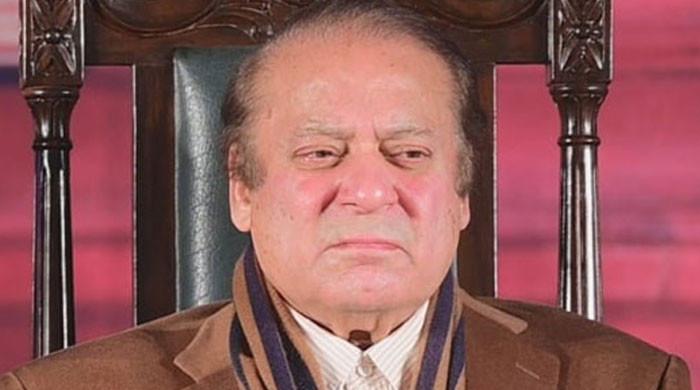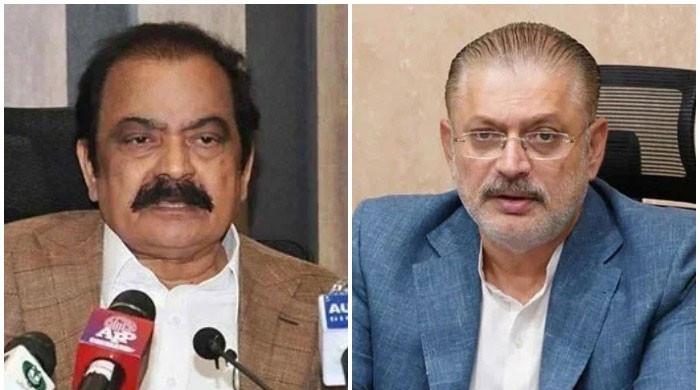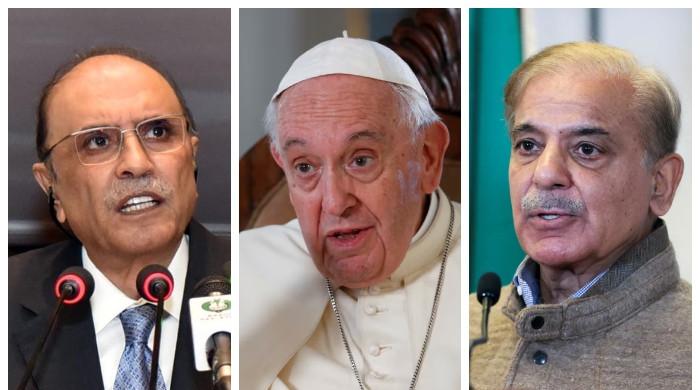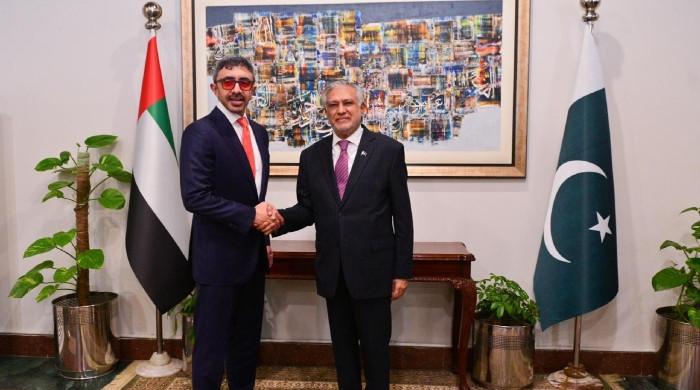Supreme Court says govt not interested in Karachi peace
KARACHI: The federal government has turned a blind eye to the worsening law and order situation prevailing in Karachi, the Supreme Court said in its detailed verdict on the law & order situation in...
February 08, 2013
The Karachi Registry of Supreme Court of Pakistan Friday issued detailed verdict on Karachi law & order case in black and white.
A larger bench of the Supreme Court comprising Justice Jawad S Khawaja, Justice Khilji Arif Hussain, Justice Sarmad Jalal Usmani and Justice Amir Hani Muslim on Thursday continued the hearing of Karachi law and order suo motu implementation case at the apex court’s Karachi registry.
The apex court in its 6-page verdict also ordered Advocate General to submit a report on the provision of security to the business activities and the measures against unlawful strikes in the financial hub of Pakistan.
The premier court directed the IGP Sindh to come up with a details on where these cops were posted right now, the disciplinary actions taken against them if any, and the reasons as to why the prosecution had not completed the task yet.
"The SC should be furnished with the details of field postings of the those police officials involved in the heinous crimes including section 302 of PPC Qatl-e-Amd (intentional and deliberate murder)", the order said.
SC also decreed that the report of Member of Inspection Team-2 (MIT-2) should be handed over to the IGP. It must be mentioned that it is the same report which blew the whistle there were at least 400 lawmen in Sindh police who were actively running rings of crime.
At outset of the hearing, the court inquired about the mechanism by which the law enforcers protect the witnesses. To which, counsel, Shah Khawer, appearing on behalf of the IGP said that the inspector general of police had constituted a committee consisting of the police officials of the Special Branch, CID and Crime Branch for taking measures to protect witnesses and a special cell has been
made.
The court in reply to the counsel, remarked that if you have made such efforts then why prosecution witnesses in journalist’s murder were killed.
The court observed that it had directed that protection should be provided to witnesses and prosecutor shall be appointed in Anti-Terrorism Court in highly transparent manner. However, the court added that reply submitted does not give any on-ground particulars about statement for witness protection.
IGP Sindh submitted that people were not ready to testify in courts. To which, Justice Khilji Arif Hussain said why people would do so as their confidence in the law enforcement agencies had diminished since it had been politicized.
The SC said that turf war between the political parties for mere political gains had also aggravated the law and order situation in the city. It said that police is not able to protect their own force. The bench remarked that due to prevailing law and order situation in the city many traders had shifted.
Prosecutor general informed the court that 11 prosecutors had been appointed through the public service commission in pursuance of court’s judgment. The court also inquired about progress into its order regarding 1.4 million illegal immigrants residing in the city. The IGP told that only 1.2 million immigrants including Afghanis and Bangalis are living in Karachi.
However, he added that the federal government had given Afghan refugees six-month time.
The court observed that it had directed IGP that he should set up a special joint cell with specialized officials and experts along with sufficient manpower to establish several teams to visit the spots and identify illegal foreigners so that they may be dealt with strictly in accordance with law.
It said that such exercise needed to be carried out in one month but IGP Sindh had failed to do so.
The court came down heavily on the deputy attorney general, Jawed Farooqi, for not filing comments regarding implementations of its orders. It scolded him and said: “We do not need you if you are not answering our questions”.
The court inquired about reports of judicial commission regarding the law and order situation in the city. To which, Home Secretary Waseem Ahmed replied that he is not aware about the number of inquiries, adding 15 reports such inquires had been traced.
The court observed that home secretary appears to be unaware of judicial reports made on Karachi killings since 1995.
The bench expressed displeasure over it as saying that statement of the home secretary appears to be extraordinary.











